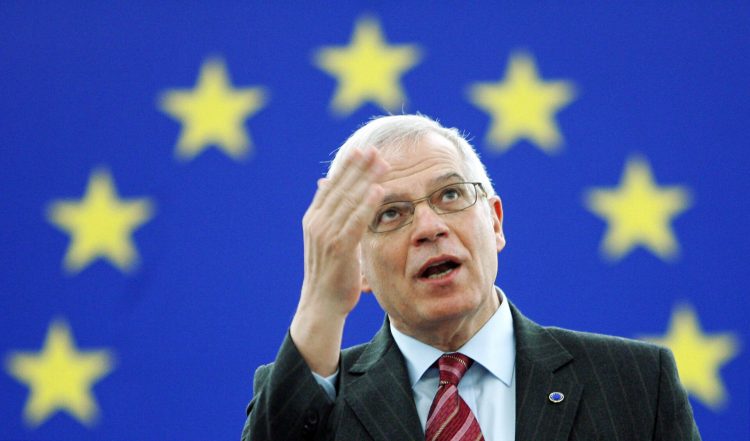
The political crisis in Bosnia and Herzegovina stands to hijack the country's potential but the European Union is prepared to "fully uphold the sovereignty and territorial integrity of BiH," EU High Representative Josep Borrell wrote in his op-ed sent to N1, adding that instead of "taking unilateral measures that contribute to destabilising the country," Bosnia's political leaders should focus on reconciliation.
The full op-ed, entitled ‘Brinksmanship and gamesmanship are not leadership’, follows:
“Bosnia and Herzegovina (BiH) is making headlines for all the wrong reasons. Instead of celebrating milestones on its EU path, news about BiH harkens back to the past. The political crisis caused by threats to undo 26 years of peace and progress stands to hijack BiH’s potential.
The Republika Srpska (RS) ruling coalition leadership is testing the limits of brinksmanship, threatening actions that undermine the economic and health interests in the RS and the fabric of the 1995 Dayton Peace Agreement. In the Federation of BiH, many politicians guard the status quo by blocking progress and engaging in gamesmanship instead of improving power-sharing and functionality of institutions.
The EU stands by one sovereign BiH, and by all the BiH citizens tired of corruption and looking to hold leaders accountable for creating a better future. A European vision for BiH and for the Western Balkans offers a vision of prosperity and security underpinned by rule of law and free movement of goods, capital, people and services. A vision of BiH firmly anchored within the EU. Enough of the past, the European future is far more attractive.
BiH citizens are united in their wish for economic growth, better healthcare and education, stability and security for their family or business, living free from corruption, raising their children in an environment that is neither polluted nor polluting their minds. They want to enjoy their ethnic, religious, cultural and civic identities, regardless of where they live, and for those identities not to be a barrier for employment or public, social and political life. They want EU standards and EU membership.
The Western Balkans are overall experiencing unprecedented economic growth, yet BiH is lagging behind and is ill-prepared to reap the benefits of regional economic integration. Attempts to reclaim competencies over medicines, armed forces, VAT or other centralised functions create instability and set BiH further back. RS citizens stand to lose more than ever. Are all the concerns articulated by RS parties unjustified? No, not per se. The lack of a state-level property law creates uncertainties that will continue to prevent full protection and functional use of public land by the entities. The decision taken by former High Representative Valentin Inzko to use the so-called Bonn Powers for criminalising denial of genocide is not about collective blame or an attack on the RS but about the dignity of all victims. The BiH Parliament is the venue to debate such issues. Instead of taking unilateral measures that contribute to destabilising the country, focus should lie on reconciliation, building trust and respect between communities. As to the Office of the High Representative (OHR), the European Union’s position remains that the goal is to hand over supervision to BiH’s citizens through accountable institutions. We agree on the “5+2” agenda for the closure of OHR, but the conditions have not been met yet. Current actions simply delay the completion of international supervision. Those who call for OHR’s closure the loudest contribute the most to the need for its continued presence.
Political solutions have not been exhausted. Further escalation must be avoided and a positive way forward to return to constructive decision-making processes within BiH institutions is needed. We have seen that when there is sincere political will, the BiH leadership can deliver reforms. Currently, however, BiH is held back from unfolding its full potential due to the lack of trust and willingness to compromise by coalition ‘partners’ SDA, SNSD, HDZ BiH and DF, resulting in stalemates and an inability to reach common-sense agreements.
Constitutional and electoral reform is therefore an urgent priority. It is a crucial measure for trust-building and preventing electoral fraud. The constitutional reform aims to remove discrimination from the BiH Constitution through full implementation of the rulings of the European Court of Human Rights in relation to the BiH Presidency and BiH House of Peoples. This includes amendments to the Election Law to strengthen the integrity of elections. It is not about removing the concept of the constituent peoples or their rights but about securing rights for all in a way that preserves the territorial structure of BiH. The EU is working to facilitate these discussions, also together with the United States. Our expert teams, led by senior officials Angelina Eichhorst and Matt Palmer, together with our ambassadors, are facilitating a political dialogue to explore options in line with standards that would have the necessary support in parliament. Our senior officials are currently in BiH again to work intensively with leaders on the ground. As part of this process, we seek to improve the functionality of governance, especially in the Federation of BiH. Changes affecting elections must be made well ahead of the 2022 elections.
The EU will fully uphold the sovereignty and territorial integrity of BiH, and the EU’s military operation on the ground, EUFOR ALTHEA, will continue to deliver on its core mandate to maintain a safe and secure environment for all citizens of BiH, and the implementation of civilian aspects of the Dayton Peace Agreement. A better future for all in BiH demands building up, not tearing down. The politics of fear is a losing strategy. It is time to return to the table, for leaders from both entities to build consensus and solutions for a better future for all citizens in BiH.”





Kakvo je tvoje mišljenje o ovome?
Budi prvi koji će ostaviti komentar!